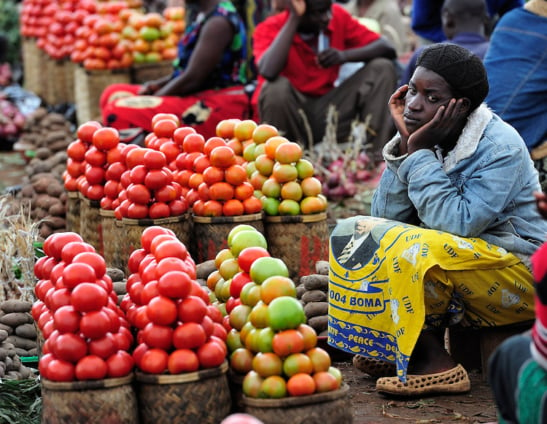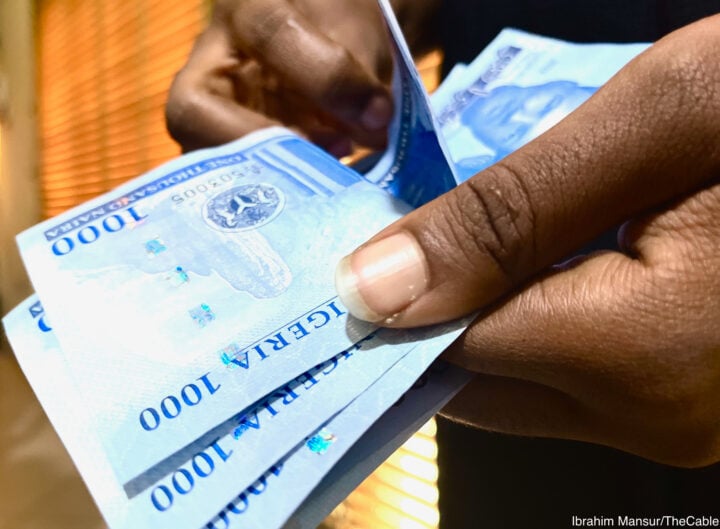BY OLA EMMANUEL
The skit maker chose a very auspicious location to pass the message across. Crossing the Lagos-Ibadan Expressway, with the fast-moving vehicles on top speed in both directions, she struggled to climb over the divide in an attempt to cross to the other side. She was on call and passing a message as loudly as she could. Speaking in Yoruba tongue, she informed her brother in a telephone conversation that Nigeria has changed from what he knew it to be. Whenever he is sending money again, he should please add the POS operator’s share because only N17,000 was given to her from the N20,000 he sent. The brother must not forget this very important part of the sharing of money that the POS operators now remove at source, she shouted repeatedly. What else to add? The message clearly captures 2023 Nigeria where variance and dissonance occasioned the government’s policy of absurdity and bizarre. Two months into 2023, the economic machine has already ground to a halt and responses from the minders of the economy can best be described as products from a clouded mind.
The United Nations, in speaking for the MSMEs Day (June 27), declared that “policymakers must move beyond recovery and consider ways in which to lower and eliminate barriers faced by MSMEs, improve the business environment and access to finance, markets and technology in these fragile times”. In the release, the international body goes further to state that it is critical that countries and their development partners continue to support and empower MSMEs and unlock their full potential through inspiring innovations, creativity and decent work for all.
However, it is left to be seen how Nigeria’s economic and monetary policymakers, especially the Central Bank of Nigeria have been coming up with their own inspiring innovation and creativity to make the MSMEs happy in Nigeria. Rather, the reverse is the case where monetary policy formulation is hardly thought through and not really subjected to economic health checks to fully identify and appreciate the implications of such policies and the effects of patchy implementations on the masses and enterprises.
Advertisement
What Nigeria is currently witnessing is not what they bargained for. Ordinarily, before the CBN will embark on the slapdash implementation of the new naira notes and the cashless policy, it ought to learn about possible outcomes of such exercises from the economies that had towed the same path. In 2016, India embarked on a demonetisation policy and the outcomes had been abysmally destructive to the MSMEs in the country. Years after, many micro and small enterprises are yet to recover from the damaging effects of India’s 2016 demonetisation exercise.
Gleaned from Indian experience, not only will a badly implemented demonetisation leave the rural economy paralysed, the backbone of an economy, the micro and small businesses in the urban metropolis are bound to be negatively affected. The capacity of a cash crunch to lead to the non-availability of cash to pay for food speaks volumes about what reaction to expect from the people. The Indian 2016 experience is enough to teach Nigeria’s policymakers good lessons. But it is hard to see that they really consulted books before embarking on the naira notes swapping (rather a confiscation of people’s cash) at a time the economy is already wounded by intractable fuel scarcity.
According to the outcome of a report carried out on India’s demonetisation (which was reported and published online by Business Standard), two years after getting hit by demonetisation, MSMEs in the country continue to limp. Going by the outcome of a survey conducted across 25,000 units that comprised nearly 50% of micro and small industries, and 25% each of medium and large firms found themselves suffering from the demonetisation debacle. Enterprises and value-chain players, especially in the leather industry, who used to collect raw leather and sell it mostly for cash payments have almost disappeared today. Their businesses have been wiped out. Since November 8, 2016, Indian micro, small and medium enterprises and traders across industries are still wallowing in the aftershocks of the money-swapping policy. From job loss to the dissolution of businesses, the impact of the drastic economic measure is being felt continuously.
Advertisement
The demonetisation exercise in India caused panic and chaos in the country. The same scenario is playing out in Nigeria. Down south, public unrest has been rife in cities and towns with the attendant destruction of banks and other public properties when people submitted their meagre cash amounts to banks but couldn’t get their money back. What ought to be cash swapping had turned into something else. It really shows the CBN could not gather useful data that can help it perform its policy implementation without hitches. One hopes what the CBN has unleashed will not degenerate to the level of that of India where daily wage workers were thrown into despondency and many were thrown out of work as employers could not pay them in cash due to the attendant cash crunch the demonetisation caused.
Already, negative impacts on disposable income and the consumption patterns of people are already been recorded. Though less currency circulation may reduce inflation and curb kidnapping, what is yet to be seen by many economists and financial analysts is the possibility of the government’s assertion that the naira redesign will check the influence of money on the outcomes of the general election. From all indications and the current appalling financial state of the masses, little amount of money may be required to induce voters now compared to when there was a free flow of cash. As plausible and laudable some of the reasons adduced for the naira notes redesign and the cashless policy may seem, that the masses, as well as micro and small enterprises, are thrown into untold hardships means that the CBN failed in its primary responsibilities and must, as a matter of urgency, come up with palliative measures to cushion the effects of its latest monetary policy that is annihilating at great speed the badly affected micro and small scale enterprises.
In my piece titled ‘Redesigned Bank Notes, Cashless Policy and Urgent Tasks Before CBN Governor’ published January 9, 2023, I identified some probable responses from the masses if the Central Bank of Nigeria failed to do a good job of the cash swapping exercise. I proffered that where the cashless policy is forced on the masses through scarce bank notes, the banking sector is looking for the poor’s trouble which is not going to be palatable for the country and the ordinary person on the street. If banking will become a problem, it is better one keeps his money at home where he would be seeing it and monitoring it closely. The current situation as we enter into the presidential election week is already confirming this assertion. The CBN is so far failing, per minute, in its duty to ensure a hitch-free supply of cash to the people who turned in their old naira notes before the initial January 31, 2023 deadline.
With the current cash crunch and the inability of daily income earners to earn their livelihood, coupled with the point of sales (POS) operators’ decision to milk the situation, the CBN needs to act magically and surgically to put a decisive end to this anarchy immediately. Not only must cash be released to flood the banks for unhindered onward release to the people, but incentives must also urgently be introduced if the cashless policy is to succeed. More importantly, palliatives must be rolled out for micro and small enterprises without much delay to enable them to recover. Due to non-patronage, many micro and small business operators who rely on daily sales to make ends meet have eaten their business capitals. Not a few have resorted to trade by barter in order to find food for their families.
Advertisement
To anchor this piece, monetary policies must not be anti-people and the banking sector should not make itself an enemy of the people. The question before all of us is, was the Indian demonetisation exercise a success or a failure? The fact that some segments of the country’s economy have not recovered six years after the decision to scrap all the high-value currency notes is proof of how spectacular a failure the policy is. Nigeria shouldn’t be another bad example.
Emmanuel is a business planning consultant and founder of Leacent Incorporated Trustees, a network of entrepreneurs and a group of cooperatives. He works with a team of international consultants to conceptualise and plan agribusiness and housing projects. His book, Business Planning Made Easy: Step by Step Guide On How To Turn Your Idea To Profitable Business is the latest of the books authored by him. He can be reached via +234(0)9068602954 (call and sms), +234(0)8023257707 (WhatsApp only)
Views expressed by contributors are strictly personal and not of TheCable.






